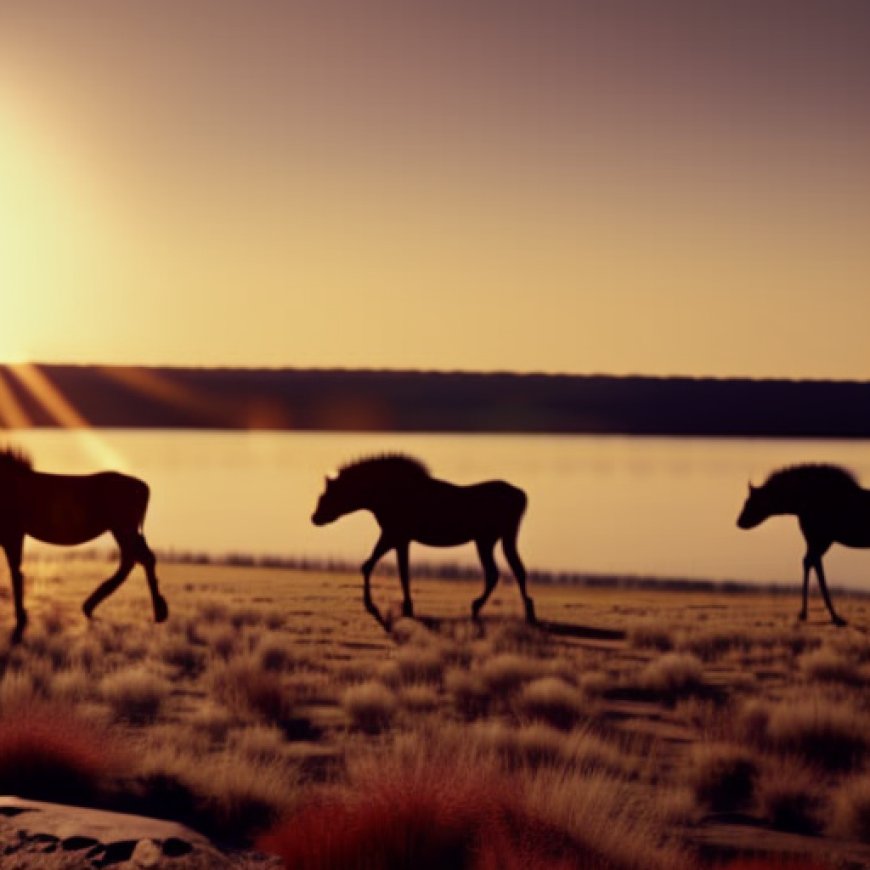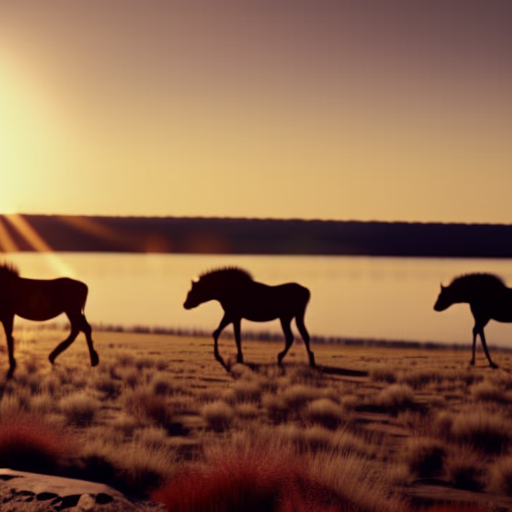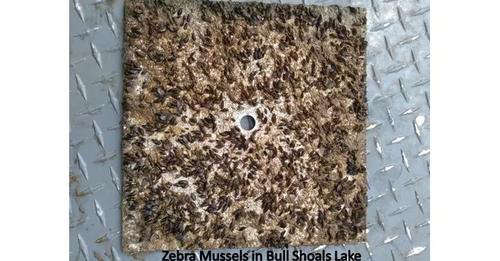Zebra Muscles Detected in Arkansas on Bull Shoals Lake
Zebra Muscles Detected in Arkansas on Bull Shoals Lake KRZK 106.3


Arkansas Game and Fish Commission Confirms Presence of Zebra Mussels in Bull Shoals Lake

Introduction
Last week, the Arkansas Game and Fish Commission (AGFC) confirmed the presence of Zebra Mussels, an invasive mollusk species, in Bull Shoals Lake in Arkansas near Lead Hill.
This marks the first documented occurrence of Zebra Mussels in north-central Arkansas, dating back to 2007. The discovery has raised concerns as Zebra Mussels can cause various ecological problems and harm native aquatic life.
Zebra Mussels and Their Impact
- Zebra Mussels are known for their rapid proliferation and destructive impact on aquatic ecosystems.
- They have been known to smother native mussels, clog intake pipes, and attach themselves to boats and docks in such densities that equipment becomes inoperable.
- Zebra Mussels compete with young fish and shad by filtering out the microscopic food these species rely on for sustenance.
Although their numbers in Bull Shoals Lake have been somewhat controlled due to high fluctuations in water levels in recent years, other waterbodies have not been as fortunate.
Monitoring and Prevention
Biologists in north-central Arkansas have taken proactive measures to monitor the situation. They have deployed Zebra Mussel detection plates at eight marinas near popular boat ramps on Norfork Lake since 2018. These detection plates serve as monitoring devices to detect the presence of Zebra Mussels in a water body. In a recent check of the detection plates on Norfork Lake, no Zebra Mussels were found.
To reduce the risk of transporting Zebra Mussels from infested waters, boat owners are urged to:
- Clean, drain, and dry their boat, motor, and trailer.
- Remove drain plugs at the boat ramp and allow all water to drain.
- Wash their boats and trailers with high-pressure, hot water if possible.
- Clean all live wells, bilge pumps, ballast tanks, and other areas that hold or pump water.
- Allow the boat and trailer to dry.
These steps will help ensure that other water bodies do not become infested with Zebra Mussels.
If anyone discovers Zebra Mussels, they should contact the AGFC Aquatic Nuisance Species (ANS) Program Coordinator at 501-604-0485.
Legal Consequences
The transportation of Zebra Mussels in Arkansas is illegal, and transporting them across state lines is a Federal offense.
Additional Information
For more information on Zebra Mussels and other aquatic nuisance species found in Arkansas, visit the AGFC Aquatic Nuisance Species page on our website. The page provides information on observed ANS in the state, images and profile information on each species, and an online ANS reporting tool to report any observed aquatic nuisance species.
(Release from Arkansas Game and Fish Commission posted by KTLO)
SDGs, Targets, and Indicators
-
SDG 14: Life Below Water
- Target 14.1: By 2025, prevent and significantly reduce marine pollution of all kinds, in particular from land-based activities, including marine debris and nutrient pollution.
- Target 14.2: By 2020, sustainably manage and protect marine and coastal ecosystems to avoid significant adverse impacts, including by strengthening their resilience, and take action for their restoration in order to achieve healthy and productive oceans.
- Target 14.3: Minimize and address the impacts of ocean acidification, including through enhanced scientific cooperation at all levels.
- Target 14.4: By 2020, effectively regulate harvesting and end overfishing, illegal, unreported and unregulated (IUU) fishing and destructive fishing practices and implement science-based management plans, in order to restore fish stocks in the shortest time feasible, at least to levels that can produce maximum sustainable yield as determined by their biological characteristics.
The presence of Zebra Mussels in Bull Shoals Lake and the potential spread to other water bodies highlights the need to prevent and reduce marine pollution caused by invasive species. The article mentions the destructive impact of Zebra Mussels on aquatic ecosystems, native aquatic life, and equipment such as boats and docks. These issues align with the targets under SDG 14, particularly target 14.1 to prevent and reduce marine pollution and target 14.2 to sustainably manage and protect marine ecosystems.
-
SDG 15: Life on Land
- Target 15.8: By 2020, introduce measures to prevent the introduction and significantly reduce the impact of invasive alien species on land and water ecosystems and control or eradicate the priority species.
- Target 15.9: By 2020, integrate ecosystem and biodiversity values into national and local planning, development processes, poverty reduction strategies and accounts.
The presence of Zebra Mussels as an invasive species in Bull Shoals Lake highlights the need to address invasive alien species and their impact on land and water ecosystems. The article mentions the ecological problems caused by Zebra Mussels and their competition with native species for food. These issues align with target 15.8 under SDG 15, which aims to prevent the introduction and reduce the impact of invasive alien species.
SDGs, Targets, and Indicators
| SDGs | Targets | Indicators |
|---|---|---|
| SDG 14: Life Below Water | Target 14.1: By 2025, prevent and significantly reduce marine pollution of all kinds, in particular from land-based activities, including marine debris and nutrient pollution. | The presence of Zebra Mussels in Bull Shoals Lake and their impact on native aquatic life can be used as an indicator to measure progress towards reducing marine pollution caused by invasive species. |
| SDG 14: Life Below Water | Target 14.2: By 2020, sustainably manage and protect marine and coastal ecosystems to avoid significant adverse impacts, including by strengthening their resilience, and take action for their restoration in order to achieve healthy and productive oceans. | The presence of Zebra Mussels in Bull Shoals Lake and their potential spread to other water bodies can be used as an indicator to measure progress towards sustainably managing and protecting marine ecosystems. |
| SDG 15: Life on Land | Target 15.8: By 2020, introduce measures to prevent the introduction and significantly reduce the impact of invasive alien species on land and water ecosystems and control or eradicate the priority species. | The presence of Zebra Mussels as an invasive species in Bull Shoals Lake can be used as an indicator to measure progress towards preventing the introduction and reducing the impact of invasive alien species. |
Behold! This splendid article springs forth from the wellspring of knowledge, shaped by a wondrous proprietary AI technology that delved into a vast ocean of data, illuminating the path towards the Sustainable Development Goals. Remember that all rights are reserved by SDG Investors LLC, empowering us to champion progress together.
Source: legends1063.fm

Join us, as fellow seekers of change, on a transformative journey at https://sdgtalks.ai/welcome, where you can become a member and actively contribute to shaping a brighter future.







